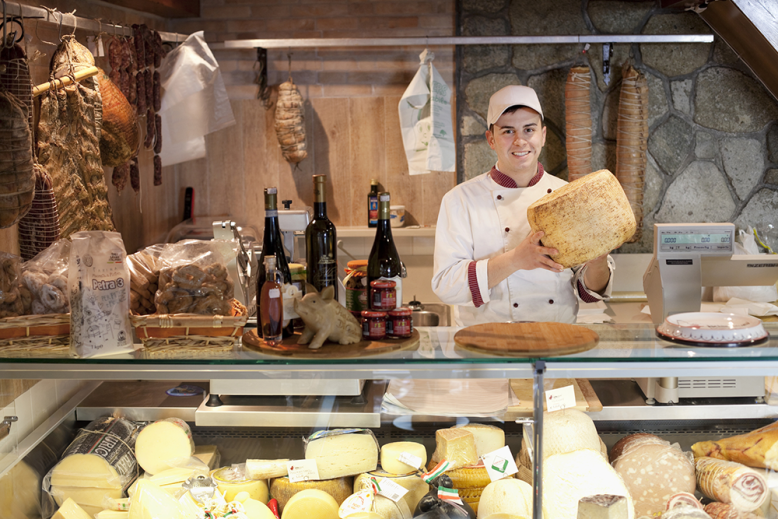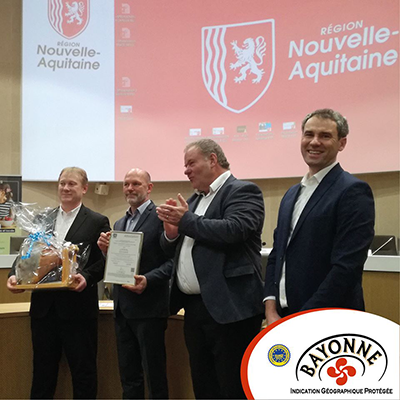CSR in the food industry? It’s easier with ISO 26030

Spurred on by French players, the voluntary ISO 26030 standard has just been launched. It specifies, for all players in the food chain, the principles of social responsibility, and supports progressive approaches, made effective by robust CSR labels.
It’s a sector that’s often the subject of finger-pointing, suspicion and criticism, and yet it’s quite simply… vital! We’re talking about the food industry. “Whether we buy from a hypermarket or a small local market gardener, we are all its customers. We ingest their products: trust and safety are essential. That’s why it was essential to apply CSR principles to this sector,” sums up Jean-Marc Callois, ministerial delegate for agri-food businesses at the French Ministry of Agriculture and Food.
ISO 26030: a common language for CSR in agri-business
Since January 2020, this work has been made much easier: a new voluntary standard, called NF ISO/TS 26030, offers industry players an instruction manual for building a sustainable development policy that sweeps up all the issues (economic, social, environmental, territorial, ethical) and leaves nothing out in the process. And since the agri-food industry is a global market – despite all the encouragement to shorten supply chains – this standard is international: it is the fruit of a worldwide consensus, so that from one country to another, from one profession to another, all players speak the same language. All of this is in line with the United Nations’ Sustainable Development Goals (SDGs), which are dear to the hearts of business leaders, who see them as an interesting way of reorienting their business model! It was well worth a conference… or even two: on January 14, 2020 in Bordeaux, then on January 23 in Paris at the initiative of the AFNOR members’ club, the stakeholders discussed this text, which will be a milestone in the French standards landscape.
But the food industry didn’t wait for standardization before committing to this approach. The first initiatives were launched in 2006. AFNOR and the Coopération agricole (a union of over 2,500 structures representing 40% of French agri-food sales) then launched a “Sustainable Development” diagnostic to assess practices. And in 2010, the industry turned its attention to ISO 26000, which had just been published. “This international standard on social responsibility lays all the foundations, but wasn’t specific and operational enough for our sector,” recalls Benjamin Perdreau, CSR manager at Coopération agricole. As early as 2012, together with various players, we began to apply the principles of this standard to our business.”
Soon to be a requirement in calls for tender
Local roots, traceability, organic farming, training, remuneration and workplace safety for food industry professionals… ISO 26030 examines all these issues and adapts them from ISO 26000. Our Franco-French text then served as the basis for international work carried out by thirty countries under the aegis of ISO,” continues Benjamin Perdreau. The French version was completed and enriched, with new subjects such as animal welfare and the circular economy. In the end, ISO 26030 is the first international sectoral version of ISO 26000, and France was at the helm. A real source of pride.
Although voluntary, this text is nonetheless highly recommended. Jean-Marc Callois, the French Ministry of Agriculture, believes that the principles of CSR will rapidly become essential. “These notions will soon be systematically included in calls for tender. A requirement to meet consumer expectations”. “Those who do not commit to a responsible approach risk being excluded from the market, confirms Benjamin Perdreau. We’re already seeing this, with new demands appearing in specifications”.
ISO 26030: a sector-by-sector rollout
But in a sector made up 98% of SMEs, how do you ensure effective deployment? While several levers are available – notably public procurement – the Ministry is counting on a gradual adaptation. The same is true of the producers. The Coopération agricole is also launching an educational program to explain the benefits of this approach to professionals. By the end of December 2019, over 4,000 people had completed its “CSR and Agri-food” MOOC, with over 40% of its audience located in Africa. The union was also behind the creation of the “Coopératives So Responsables” label, based on the reading grid now proposed by ISO 26030 in conjunction with the AFNOR group and France Stratégie.
An independent auditor reviews the measures put in place, the indicators and the performance achieved, thus carrying out a critical review that places the company on a path of continuous improvement. In short, anything but self-proclamation… and without the risk of greenwashing that goes with it! The aim is clear: to ensure that the impetus comes from the field, sector by sector (see box), and that all the players concerned find in the standard an easy answer to the questions they – and their customers – ask themselves in reconciling economic, ecological and social concerns.
CSR in the agri-food sector: FAO says yes to ISO 26030 standard
In Bayonne, ham sets an example
Created twenty years ago, the Bayonne Ham consortium brings together the entire industry: breeders, producer groups, feed manufacturers, slaughterers, slicers and cured meats producers. ” Despite its renown, charcuterie is contested, and Bayonne Ham is no exception to the doubts and criticisms: questions about the feed given to pigs, GMOs, slaughter methods, the use of salt and preservatives… So we set out to find a positive way of answering these questions,” explains Pierre Harambat, head of the interprofessional organization.
 The consortium quickly understood the benefits of working together: all the businesses in the sector are interdependent, and a global response is needed. Together, the members decided to create the “Bayonne Ham CSR Chain” label, based on the ISO 26030 standard and echoing the generalist Engagé RSE label, which the consortium itself holds (confirmed level), following an audit by AFNOR Certification. “We quickly identified that many good practices existed within our network. We decided to encourage them. For example, the installation of cameras in slaughterhouses, the sourcing of food from local sources, and the ban on antibiotics” , lists Pierre Harambat.
The consortium quickly understood the benefits of working together: all the businesses in the sector are interdependent, and a global response is needed. Together, the members decided to create the “Bayonne Ham CSR Chain” label, based on the ISO 26030 standard and echoing the generalist Engagé RSE label, which the consortium itself holds (confirmed level), following an audit by AFNOR Certification. “We quickly identified that many good practices existed within our network. We decided to encourage them. For example, the installation of cameras in slaughterhouses, the sourcing of food from local sources, and the ban on antibiotics” , lists Pierre Harambat.
With its own label, which is intended to appear on products, the sector sees benefits in the short term – by attracting the spotlight – but above all in the medium and long term. “CSR is in line with history. It’s essential if we are to convince future buyers, both in France and abroad, of the quality of our products. If we don ‘t jump on this bandwagon, we run the risk of being left behind,” concludes Pierre Harambat.
Getty Images/Kathrin Ziegler